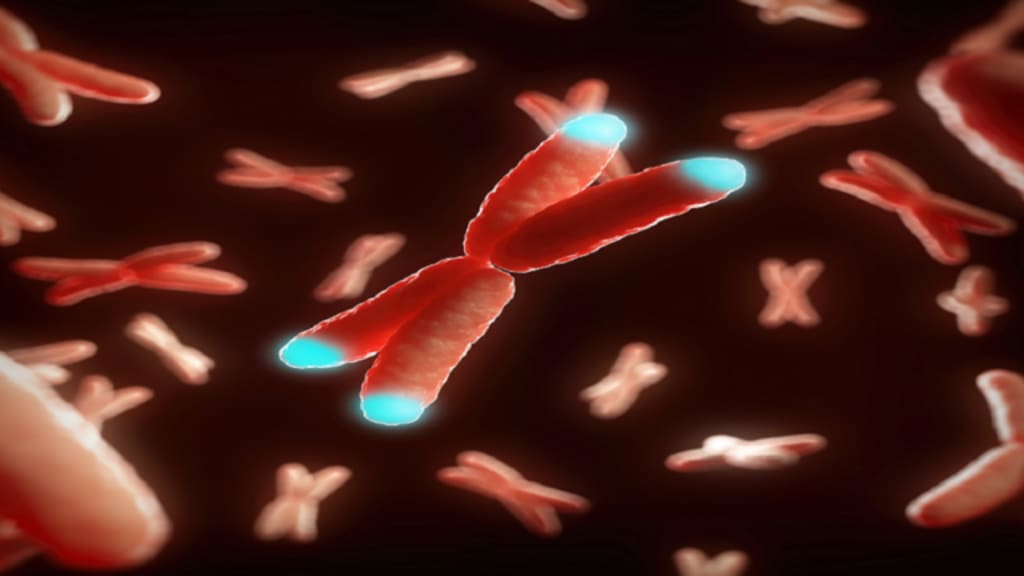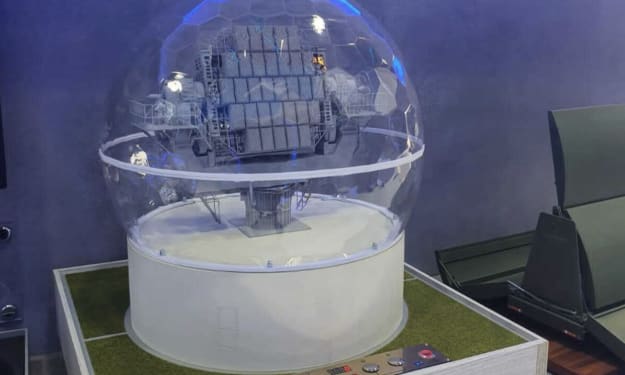What are the symptoms of depression and memory loss associated with the elderly?!
There is a small, slow-burning "fuse" attached to the ends of all our chromosomes, and as we age naturally, each of our cells loses more and more of this life-giving streak.

Now researchers in South Korea have shown that this filament, known as a telomere, is unusually short in the cells of elderly people who are relatively healthy but notice early signs of symptoms of depression and cognitive decline, such as memory loss.
The randomized controlled trial provides more evidence for the telomere hypothesis of aging, which assumes that all cells have reached a point where they can no longer divide and reproduce. Telomeres are essentially the 'molecular clocks' that reach a final zero, and the countdown seems to be speeding up due to chronic stress and possibly depression.
They are also repetitive strands of DNA that form protective "caps" on the ends of a cell's chromosomes. Each time a cell divides and reproduces, the telomeres grow a little shorter, and their protective qualities diminish.
When the telomeres finally reach their end, the cell stops dividing and enters a zombie-like state.
According to the hypothesis, if the body's recycling system does not remove these zombie cells, this can contribute to disease anywhere in the body.
Whether you accept this hypothesis or not, it is clear that telomere shortening is closely related to aging, not only of the cell but of the entire organism.
Several studies have shown that the length of telomeres in older individuals correlates closely with cognitive impairment and depression.
The physical toll that chronic depression can take or its links to inflammation have been used to explain why the brains and telomeres of some older individuals accelerate aging.
New research from South Korea supports this explanation, even for depression in its early stages.
The experiment included 137 volunteers between the ages of 60 and 79. In the end, those who had symptoms of depression and complained of cognitive problems were more likely to have shorter telomeres.
These shorter telomeres were also associated with increased levels of interleukin 6 (IL-6), which can act as a pro-inflammatory cytokine, in addition to an anti-inflammatory myokine, in the blood.
Neurosurgeon Myung Hoon Han and colleagues from Hanyang University's Guri Hospital, write: "Based on our findings, we believe that shortening of telomere length in the elderly is not only associated with advanced depression but also with early depressive symptoms. Shortening of telomere length is associated with increased levels of IL-6 in older adults." Elderly, we speculate that IL-6 may be a cytokine involved in depression from early stages to advanced depression."
Chronic inflammation has become a prime suspect in many age-related diseases in recent years, including Alzheimer's disease.
Today, depression is known to significantly increase the risk of Alzheimer's disease, and increased inflammatory markers such as IL-6 have been linked to dementia.
The researchers acknowledge that "the exact mechanism underlying the association of shorter [telomeres] with depression, cognitive decline, and inflammatory cytokines remains unclear."
But that's just a correlation, and it doesn't tell scientists how cause and effect works. Cells that shorten telomeres, for example, are more likely to secrete pro-inflammatory cytokines such as IL-6. Meanwhile, chronic, low-grade inflammation appears to shorten telomeres at a faster rate.
"This repeated process may cause cumulative structural and functional changes in the brain, leading to cognitive impairment and mood disorders including depression," the researchers explained.
The results of the latest randomized trial will need to be replicated in larger groups, but the researchers are hopeful that their findings will somehow help predict depression in older adults before it becomes apparent.
The study has been published in the journal Aging. Source: ScienceAlert
A report stating that the US FDA rejected Musk's request to test human brain chip implants!
Elon Musk's Nueralink brain implant won't be testing in humans anytime soon — the US Food and Drug Administration (FDA) has denied the company's request.
Nueralink employees told Reuters that the agency has identified dozens of issues the company must address before human testing, an important milestone for final approval of the product.
Concerns include the device's lithium battery; the potential for implantable microwires to travel to other regions of the brain; The staff asked if and how the device could be removed without damaging brain tissue.
Musk had applied in early 2022, but employees said the company's co-founder hadn't resolved all the issues yet - although the billionaire revealed that human trials would begin in six months in November.
Three employees said they were skeptical about the company's ability to resolve issues quickly.
During the hours-long presentation on November 30, Musk said the company had submitted "most of our paperwork" to the FDA, without specifying any formal request. But he seemed sure of the six-month timetable.
Neuralink officials acknowledged that the FDA raised safety questions in what they described as an ongoing conversation.
The sources declined to provide Reuters with the agency's written denial, which is a legally confidential document - but described it in an interview.
The company has come under scrutiny over the past few months as animal advocacy groups and former employees have sounded the alarm about animal welfare violations.
Lab observations by staff conducting trials at UC Davis show problems in animals with these implants, echoing FDA concerns.
Five Nueralink sources said the FDA's refusal listed dozens of what the agency calls "deficiencies" that the company must address before human trials.
The implant features small threads carrying electrodes that are attached to the head, but the Food and Drug Administration is concerned that the threads may travel to other areas of the brain, according to six current and former employees.
Musk is said to have tried to remedy the problem, testing the implants on dozens of pigs, with no luck.
Migrant wires can cause inflammation in the brain, impair certain functions and rupture blood vessels, said Victor Krauthammer, a former FDA official three decades ago, including during his time as acting director of the office that reviews human trial applications for brain transplants.
He and other experts said this problem would also hinder the effectiveness of the implant, forcing it to be removed.
"The sutures can cause damage because brains are so soft and so delicate," Krauthammer said.
Brain device experts said the FDA's concerns about the battery could also be serious.
And Neuralink suggested making its devices with a new charging system that includes lithium batteries that can be recharged remotely.
Six current and former Neuralink employees said the agency found the company needed to show in animal studies that the battery was less likely to fail.
And three experts in brain implants said that if any component of the device connected to the battery current fails, the current may damage brain tissue.
The US Food and Drug Administration also questioned whether the device could be removed without damaging brain tissue.
And at Nueralink's November presentation, officials acknowledged but played down the FDA's concern.
Engineer Alex Wood-Thomas was asked about the potential risk of removing the device to implant an upgraded device in the future.
He told Reuters that because of the sutures - their small size - the scarring inside the brain is so minimal that they can be removed quite easily.
Several employees disputed calling it misleading and not supported by animal studies, according to two Neuralink sources and internal discussions seen by Reuters.
Wood Thomas declined to comment.
The US Food and Drug Administration (FDA) has also cited concerns that the device could overheat, which could damage tissue.
And Neuralink may be able to address all of the FDA's concerns, industry and regulatory experts said.
Experts said that if the FDA had minor problems with the company's device, it might allow the company to move forward with a slower, phased trial.
According to two people familiar with the discussions, the agency suggested that such a path might work for Neuralink, with fewer people transplanted initially and more tests months later.
However, one source said that proposal disappointed Neuralink because it could delay progress toward final approval by the Food and Drug Administration.
News of the rejection follows several investigations into Neuralink, most recently by the US Department of Transportation (DOT) earlier this month.
The investigation came in response to allegations from the Physicians Committee for Responsible Medicine (PCRM), which stated that Musk's company unsafely packaged and transported implants from monkey brains that may have been infected.
The Daily Mail had previously obtained Neuralink lab notes detailing how applying sealant to surgical holes caused the monkey's brain to swell and bleed. Source: Daily Mail
About the Creator
News Correct
Information WorldWide MORE INFORMATION






Comments
There are no comments for this story
Be the first to respond and start the conversation.